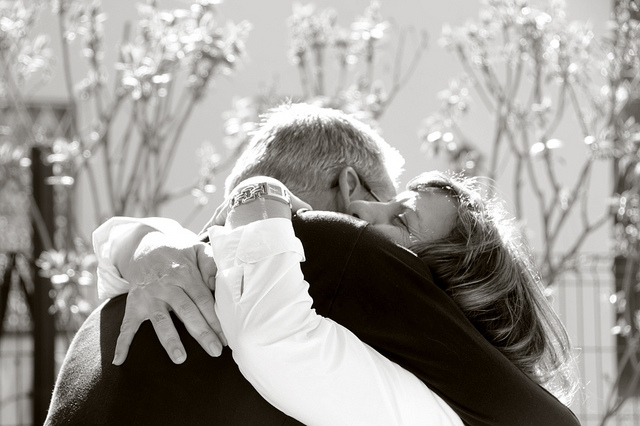
Hug photo used under Creative Commons license, courtesy of Tania Cataldo
The holidays can be rough on people emotionally.
Maybe you feel guilty you can’t afford to visit family or give the generous gifts you’d like.
Maybe you’re worried about travel or if you’ll fight with your family this year.
Maybe you’re sad because you’re missing someone you’ve lost.
An article on Business Insider headlined “A neuroscience researcher reveals 4 rituals that will make you happier” summarizes some key findings of UCLA neuroscience researcher Alex Korb and his book The Upward Spiral.
One of the ideas that struck me: Guilt and shame activate the brain’s reward center.
Via The Upward Spiral:
Despite their differences, pride, shame, and guilt all activate similar neural circuits, including the dorsomedial prefrontal cortex, amygdala, insula, and the nucleus accumbens. Interestingly, pride is the most powerful of these emotions at triggering activity in these regions — except in the nucleus accumbens, where guilt and shame win out. This explains why it can be so appealing to heap guilt and shame on ourselves — they’re activating the brain’s reward center.
And you worry a lot, too. Why? In the short term, worrying makes your brain feel a little better — at least you’re doing something about your problems.
Via The Upward Spiral:
In fact, worrying can help calm the limbic system by increasing activity in the medial prefrontal cortex and decreasing activity in the amygdala. That might seem counterintuitive, but it just goes to show that if you’re feeling anxiety, doing something about it — even worrying — is better than doing nothing.
So you aren’t a bad person if you fret, if you feel guilt, shame and anxiety, you’re doing something your brain perceives as taking action in the face of a problem.
What could you do instead?
Korb suggests gratitude, which boosts dopamine and serotonin in the brain, much as antidepressant drugs do. He also suggests naming your negative emotions rather than suppressing them.
He also suggests touching people you care about. So take the time to hug your friends and family as you see them for the holidays.
Via The Upward Spiral:
A hug, especially a long one, releases a neurotransmitter and hormone oxytocin, which reduces the reactivity of the amygdala.
Research shows getting five hugs a day for four weeks increases happiness big time.
I suggest you read the full article to help prep for the holidays. If you pick up one tip that makes this year’s holidays a little happier for you, that’s worth a few minutes, right?
Related blog posts:

1 Comment
Leave a reply